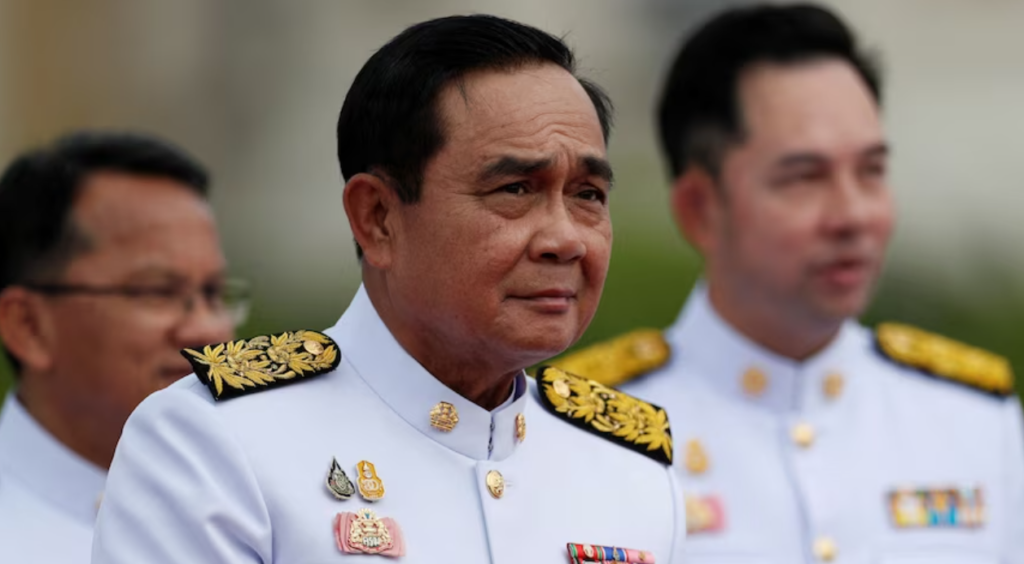Thailand’s Prime Minister, Prayut Chan-o-cha, will be retiring from politics and will not seek re-election, according to an announcement made by his party on Tuesday. This news comes just two days before Thailand’s parliament was scheduled to vote for a new prime minister, following the rejection of military-backed rule in the May election.
Prayut, who is 69 years old, has been in power since 2014 when he took control of the country through a coup and declared himself prime minister. In 2019, his party’s coalition won the majority of seats in parliament, and he was elected as the leader with the support of the senate.
The May election witnessed a significant victory for Thai opposition parties, as voters expressed their disapproval of the military-backed establishment that has governed since the coup. The Move Forward Party, known for its reformist agenda and popular among young Thais, secured the most seats and the largest share of the popular vote. The main opposition party, Pheu Thai, which has been a populist force for two decades, came in second.
Due to the limited number of seats won by Prayut’s party in the May election (only 36 seats), it was not expected that he would gather enough support in the lower house to secure another term as prime minister. However, the final outcome remains uncertain.
Prayut will continue serving as prime minister until the formation of the new government. Throughout his tenure as a military coup leader turned prime minister, he has faced criticism for growing authoritarianism and increasing inequality. Calls for his resignation intensified in 2020 when protests erupted across the country, with young people demanding the restoration of democracy and the protection of civil rights and freedoms. His government’s handling of the coronavirus pandemic, the economy, issues of nepotism, and the lack of transparency and accountability further fueled the calls for his departure.
Political scientist Thitinan Pongsudhirak, the director of the Institute of Security and International Studies at Chulalongkorn University, sees Prayut’s retirement as a defeat for the military regime and a potential boost for pro-democracy supporters. Thitinan believes that many Thais view Prayut’s exit from politics as long overdue, given his seizure of power in 2014 and subsequent governance that was seen as lackluster. Thailand has experienced signs of economic stagnation, political decay, and a decline in international standing.
Thitinan also suggests that Prayut’s retirement could potentially strengthen the chances of Pita Limjaroenrat, the leader of the Move Forward Party, in forming a post-election government.
** Taking the lead from CNN


